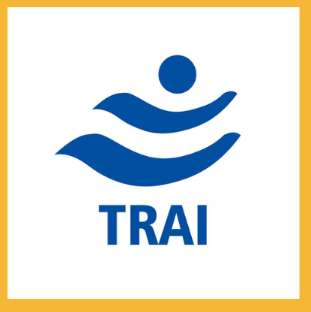Telecom Regulatory Authority of India (TRAI)
The Telecom Regulatory Authority of India (TRAI) is a statutory body established by the Government of India to regulate the telecommunications sector in the country. It was formed on 20th February 1997 by an Act of Parliament, called the Telecom Regulatory Authority of India Act, 1997. TRAI is responsible for ensuring fair competition among service providers, protecting consumer interests, and promoting the growth of the telecom sector in India.
Objectives and Functions
The main objectives of TRAI are to provide a fair and transparent policy environment for the telecom sector, promote competition and efficiency in the sector, and protect the interests of consumers. Some of the key functions of TRAI are:
- Recommending measures for the development of the telecom sector, including the introduction of new technologies and services.
- Ensuring compliance with license conditions by service providers and enforcing quality of service standards.
- Fixing and revising tariffs for telecom services, and ensuring that tariffs are fair and reasonable.
- Promoting efficiency and competitiveness in the telecom sector by encouraging the entry of new players and preventing anti-competitive practices.
- Protecting the interests of consumers by addressing their grievances and ensuring that they have access to high-quality telecom services at affordable prices.
- Monitoring the performance of the telecom sector and publishing reports and recommendations on various issues related to the sector.
Organizational Structure
TRAI is headed by a Chairperson, who is assisted by two full-time members and two part-time members. The Chairperson and the members are appointed by the Central Government and hold office for a term of three years, which can be extended up to five years. TRAI has several departments and divisions, each responsible for a specific area of the telecom sector. These include:
- Networks and Technologies Division: Responsible for technical issues related to telecom networks and technologies.
- Quality of Service Division: Responsible for ensuring that service providers comply with quality of service standards.
- Tariff Division: Responsible for fixing and revising tariffs for telecom services.
- Consumer Affairs Division: Responsible for addressing consumer grievances and ensuring that consumers have access to high-quality telecom services at affordable prices.
- Economic Regulation Division: Responsible for promoting competition and efficiency in the telecom sector.
Key Initiatives and Achievements
TRAI has launched several initiatives and programs to promote the growth of the telecom sector in India and protect the interests of consumers. Some of the key initiatives and achievements of TRAI are:
- Mobile Number Portability (MNP): TRAI introduced MNP in 2011, which allows consumers to switch their mobile service provider without changing their mobile number. This has increased competition in the telecom sector and given consumers greater choice and flexibility.
- Tariff Regulation: TRAI has fixed and revised tariffs for various telecom services, such as voice calls, SMS, and data services, to ensure that they are fair and reasonable. This has made telecom services more affordable for consumers and promoted the growth of the sector.
- Unsolicited Commercial Communications (UCC) Regulation: TRAI has introduced several measures to curb the menace of unsolicited commercial communications, such as spam calls and messages. This includes the establishment of a National Do Not Call Registry (NDNC), which allows consumers to register their mobile numbers to avoid receiving such communications.
- Quality of Service Regulation: TRAI has introduced several quality of service benchmarks for telecom services, such as call drop rates, network availability, and broadband speeds. Service providers are required to comply with these benchmarks, failing which they can be penalized by TRAI.
- Broadband Promotion: TRAI has taken several measures to promote the growth of broadband services in India, such as recommending the allocation of additional spectrum for broadband services and encouraging the deployment of fiber-optic networks. This has led to a significant increase in broadband penetration in the country.
The Telecom Regulatory Authority of India (TRAI) has played a crucial role in the growth and development of the telecom sector in India. Through its various initiatives and programs, TRAI has promoted competition and efficiency in the sector, protected the interests of consumers, and ensured that telecom services are affordable and accessible to all.


